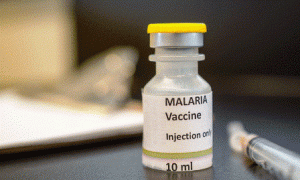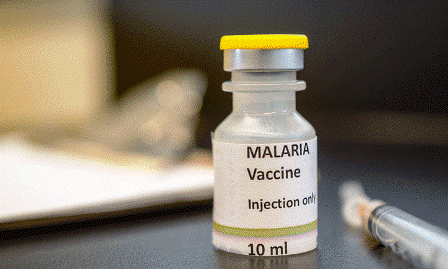 Children aged between six months and two years are expected to receive the first ever malaria vaccination in a WHO-coordinated pilot implementation of the Malaria Vaccine Implementation Program (MVIP) expected to commence in April in Ghana, Kenya and Malawi.
Children aged between six months and two years are expected to receive the first ever malaria vaccination in a WHO-coordinated pilot implementation of the Malaria Vaccine Implementation Program (MVIP) expected to commence in April in Ghana, Kenya and Malawi.
The three countries are expected to implement the RTS,S vaccine, the first and only vaccine to show partial protection against malaria in young children, in selected areas.
The vaccine is the outcome of a long-standing collaboration between PATH, GlaxoSmithKline pharmaceuticals that began in 2001. It is an injectable vaccine that provides partial protection against malaria in young children.
Like vaccines generally, RTS,S aims to trigger the body’s own immune system to defend against disease, in this case, malaria caused by Plasmodium falciparum, the most deadly species of the malaria parasite globally and the most prevalent in Africa. The large-scale Phase 3 efficacy and safety trial of RTS,S (which concluded in January 2014) showed that the vaccine candidate could provide meaningful public health benefit by reducing the burden of malaria when used alongside currently available interventions such as bednets and insecticides.
In Ghana, the Programme Manager of the Expanded Programme on Immunisation (EPI) at the Ghana Health Service, Dr George Bonsu announced that pilot programme would be implemented in Central, Upper East, Volta and Ahafo regions and would be scaled up to other regions based on its success.
Dr Bonsu explained that the vaccination would be a four-dose course to be administered to children aged six, seven, nine and 24 months of age when they visit the vaccination centres.
“Every child will have to receive the four doses. Malaria is a major problem in Ghana and we want to reduce the number of under-five deaths,” he said.
The three countries were selected to participate in the pilot based on the following criteria: high coverage of long-lasting insecticidal-treated nets (LLINs); well-functioning malaria and immunisation programmes, a high malaria burden even after scale-up of LLINs, and participation in the Phase III RTS,S malaria vaccine trial. Each of the three countries will decide on the districts and regions to be included in the pilots.
High malaria burden areas will be prioritized, as this is where the benefit of the vaccine is predicted to be highest. Information garnered from the pilot will help to inform later decisions about potential wider use of the vaccine.
The malaria vaccine will be administered via intramuscular injection and delivered through the routine national immunization programmes. WHO is working with the three countries to facilitate regulatory authorization of the vaccine for use in the pilots through the African Vaccine Regulatory Forum (AVAREF). Regulatory support will also include measures to enable the appropriate safety monitoring of the vaccine and rigorous evaluation for eventual large scale use.
Gavi, the Vaccine Alliance, the Global Fund to Fight AIDS, Tuberculosis and Malaria, and UNITAID, are partnering to provide US$49.2 million for the first phase of the pilot programme (2017-2020) which will be complemented by in-kind contributions from WHO and GSK.
In January 2016, Ghana responded to the World Health Organisation (WHO’s) call for national ministries of health to express interest in collaborating in the malaria vaccine pilot implementation programme.
The country participated in clinical trials of the malaria vaccine with two research centres in Agogo and Kintampo.

